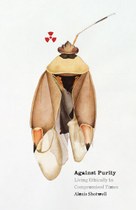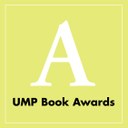Public Books: "A Gun to Our Heads"
 A profound sense of responsibility for the ecological crisis motivated David Buckel, an accomplished civil rights attorney, to take over the nascent compost program at Red Hook Community Farm in Brooklyn and turn it into one of the largest in the nation. By all accounts, Buckel understood the ways we’re connected in the mesh and was “committed to the quiet, daily work of making change.” But last winter Buckel despaired of the lack of urgent action on global warming and worried to a coworker, “Nobody cares, why does nobody believe it?” Hoping to awaken people, early one April morning, he walked from his house to a secluded spot in Prospect Park and set himself on fire.
A profound sense of responsibility for the ecological crisis motivated David Buckel, an accomplished civil rights attorney, to take over the nascent compost program at Red Hook Community Farm in Brooklyn and turn it into one of the largest in the nation. By all accounts, Buckel understood the ways we’re connected in the mesh and was “committed to the quiet, daily work of making change.” But last winter Buckel despaired of the lack of urgent action on global warming and worried to a coworker, “Nobody cares, why does nobody believe it?” Hoping to awaken people, early one April morning, he walked from his house to a secluded spot in Prospect Park and set himself on fire.
In some sense Buckel’s act wasn’t all that different from Almir Suruí’s panicked plea. Both are what the philosopher John Holloway calls “the scream,” a concept that the sociologist Alexis Shotwell, in a recent book, Against Purity, puts to use in constructing an argument for the will to action. “Wherever we stand in relation to the world,” she writes, “we can scream ‘no!’ and open the space for many yesses.”
Shotwell explicitly thinks-with Donna Haraway, a favorite influence, and implicitly across academic disciplines with Timothy Morton. The mesh is fundamentally impure, and therefore the concept of purity, manifest as a desire to return to a separate, Edenic Nature, is an impossible fantasy—and a trap. “Purism,” Shotwell substantiates, “shuts down precisely the field of possibility that might allow us to take better collective action against the destruction of the world in all its strange, delightful, impure frolic.”
Shotwell has added something to our push beyond mere responsibility: the impetus to act and the “optimism of the will” it requires. She likens the open yet sticky possibility of living in the mesh—contingent on everyone—to the inscrutable future faced by those who learned decades ago to live with AIDS (the virus, too, part of the mesh). Their lives, she observes, are contingent on medicines they struggle to afford; they’ve had to become accustomed to a frightfully uncertain future. Shotwell encourages us “to start from an understanding of our implication in this compromised world, to recognize the quite vast injustices informing our everyday lives, and from that understanding to act on our wish that it were not so.” This seems an apt description of Almir Suruí, who has been forced to seek new ways to fund the Paiter Suruí’s work protecting the rainforest.
By: Nathaniel Popkin
Story Date: 2018-10-31T05:00:00+00:00



